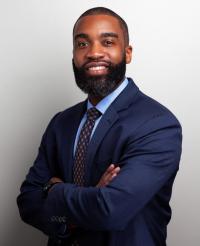October 4, 2023

As a lifelong Dorchester resident, I grew up seeing my neighbors feeling forgotten by our city government. I heard the frustrations from residents struggling to get what they needed, while other neighborhoods seemed to thrive and flourish.
Boston’s district council system was formed in 1983 to provide neighborhoods with more support and direct representation. But there have been inequities in investment across the districts since its creation.
My predecessors as councillors in this office, Attorney General Andrea Campbell and Charles Yancey, spoke out against these inequities and the tale of two Bostons. They highlighted the jarring geographic differences in life expectancy, median income, and graduation rates.
We all have heard some of these statistics, but it’s important to look at them as a whole to understand the scale of the issues that communities like Dorchester, Mattapan, and Roxbury are facing.
• Back Bay and Nubian Square are two miles apart but there is a 23-year difference in life expectancy and a $100,000 difference in median income between the two neighborhoods.
•In 2020, 70 percent of people stopped by the Boston Police were Black — even though Black Bostonians only make up one-quarter of the city’s population.
•Nearly 80 percent of students in downtown Boston and Charlestown attend high-quality or tier 1 schools, compared to just 5 percent in Mattapan.
•According to the city’s own study, less than one-half of one percent of prime city contracts awarded over a 5-year period went to Black-owned businesses.
For decades, city policies have continued to turn friends, family members, and neighbors into statistics as inequities in opportunity, wealth, health outcomes, and education persisted generation after generation. I want to change the trajectory of Black people in Boston to provide leadership for a community rich with talent, creativity, and genius, but lacking in the structural support within our city so that all Black Bostonians can realize their full potential.
I ran for office to continue the work of those who came before me and to fight for more investment in our district, using my experience as a small business owner helping people achieve their dreams of homeownership to navigate our city and deliver on key issues.
Despite that background, when I started to dig into my first city budget, I was shocked at how black-and-white these inequities have been when it comes to our city budget. District 4 lagged far behind every other district, receiving only 4.22 percent of the budget allocated specifically to our communities in the past five years — the lowest percentage of any of the nine districts. When you combine this recent lack of investment with the historical policies that enforced structural inequity and racism, it created a clear picture of the challenges that still face my district today and how they were reinforced and often created by government action.
I immediately got to work, engaging Mayor Wu and her administration, to discuss how we could use this budget as an opportunity to begin to right those past wrongs and tackle immediate needs that residents had been vocalizing for years.
Through that partnership, District 4 received a record of capital improvement plan (CIP) funds with a total of 11 percent allocated to capital projects in our community that will help our parks, school buildings, and streets. That investment includes money to design and construct new branch libraries in Fields Corner and Codman Square, a new stand-alone BCYF Dorchester Community Center, improvements to Ceylon Park, and renovations to King K-8 School, Henderson Inclusion Lower School and UP Academy Dorchester, among many other District 4 projects.
While this initial win is a great first step, there is critical work ahead as we continue to demand key investments in our infrastructure for the future and resilience of our neighborhoods. I am grateful to Mayor Wu and will continue to partner with the administration and my council colleagues to tackle the issues facing our city, make our city more equitable, and deliver for District 4.
Brian Worrell is District 4’s city councillor.


